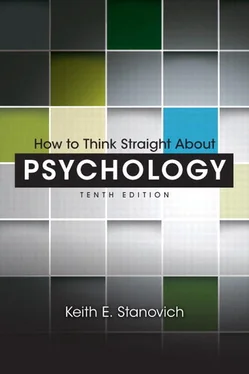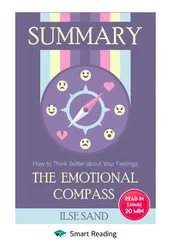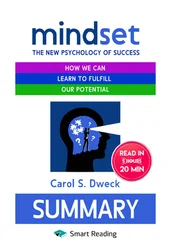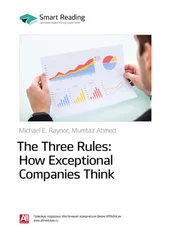Brooks, A. C. (2008) . Gross national happiness. New York: Basic Books.
Brown, M. (2010) . How I killed Pluto and why it had it coming. New York: Spiegel & Grau.
Brownell, K. D. (2011, July). Is there the courage to change America’s diet? APS Observer, 24, 15–16.
Bruck, M., & Ceci, S. (2004) . Forensic developmental psychology: Unveiling four common misconceptions. Current Directions in Psychological Science, 13, 229–232.
Bryan, C., Walton, G. M., Rogers, T., & Dweck, C. S. (2011) . Motivating voter turnout by invoking the self. Proceedings of the National Academy of Sciences, 12653–12656.
Buchtel, E. E., & Norenzayan, A. (2009) . Thinking across cultures: Implications for dual processes. In J. S. B. T. Evans & K. Frankish (Eds.), In two minds: Dual processes and beyond. Oxford: Oxford University Press.
Buckley, C. (2010, December 9). To test housing program, some are denied aid. New York Times, pp. A1–A4.
Buhle, J., Stevens, B., Friedman, J., & Wager, T. (2012) . Distraction and placebo: Two separate routes to pain control. Psychological Science, 23, 1–8.
Burton, R. (2008) . On being certain. New York: St. Martin’s Press. Buss, D. M. (Ed.). (2005) . The handbook of evolutionary psychology. Hoboken, NJ: John Wiley.
Buss, D. M. (2011) . Evolutionary psychology: The new science of the mind (4th ed.).
Boston: Allyn and Bacon.
Cacioppo, J. T. (2007a). Psychology is a hub science. APS Observer, 20, 5, 42.
Cacioppo, J. T. (2007b). The structure of psychology. APS Observer, 20, 3, 50.
Card, N. A. (2011) . Applied meta-analysis for social science research. New York: Guilford.
Carnagey, N. L., Anderson, C. A., & Bartholow, B. D. (2007) . Media violence and social neuroscience: New questions and new opportunities. Current Directions in Psychological Science, 16, 178–182.
Carnoy, M., Jacobsen, R., Mishel, L., & Rothstein, R. (2005) . The charter school dust-up: Examining the evidence on enrollment and achievement. New York: Teachers College Press.
Cartwright, J. (2008) . Evolution and human behavior (2nd ed.).
Cambridge, MA: MIT Press. Chamberlin, J. (2010, November). Type cast. APA Monitor, pp. 28–30.
Chernev, A. (2011) . The dieter’s paradox. Journal of Consumer Psychology, 21, 178–183.
Chida, Y., & Hamer, M. (2008) . Chronic psychosocial factors and acute physiological responses to laboratory-induced stress in healthy populations: A quantitative review of 30 years of investigations. Psychological Bulletin, 134, 829–885.
Cho, H. J., Hotopf, M., & Wessely, S. (2005) . The placebo response in the treatment of chronic fatigue syndrome: A systematic review and meta-analysis. Psychosomatic Medicine, 67, 301–313.
Churchland, P. M. (1988) . Matter and consciousness (Rev. ed.).
Cambridge, MA: MIT Press. Claridge, G., Clark, K., Powney, E., & Hassan, E. (2008) . Schizotypy and the Barnum Effect. Personality and Individual Differences, 44, 436–444. Claypool, H., Hall, C., Mackie, D., & Garcia-Marques, T. (2008) . Positive mood, attribution, and the illusion of familiarity. Journal of Experimental Social Psychology, 44, 721–728.
Cleeremans, A. (2010) . The grand challenge for psychology: Integrate and fire! APS Observer, 23(8), 15–17.
CNN.com (2004, May 1). Nightline airs war dead amid controversy. Retrieved December 30, 2005, from http://www.cnn.com/2004/SHOWBIZ/TV/05/01/abc.nightline/ Cohen, A. (2008, December 29). Four decades after Milgram, we’re still willing to inflict pain. New York Times, p. A22.
Cohen, P. (2009, October 20). Field study: Just how relevant is political science? New York Times, pp. C1–C7.
Conkle, A., & West, C. (2008, June). Psychology on the road. APS Observer, 21, pp. 18–23.
Cozby, P. C. (2012) . Methods in behavioral research (11th ed.). New York: McGraw-Hill.
Croswell, J., et al. (2009) . Cumulative incidence of false-positive results in repeated, multimodal cancer screening. Annals of Family Medicine, 7, 212–222.
Currier, J. M., Neimeyer, R., & Berman, J. (2008) . The effectiveness of psychotherapeutic interventions for bereaved persons: A comprehensive quantitative review. Psychological Bulletin, 134, 648–661.
Dacey, A. (2008) . The secular conscience. Amherst, NY: Prometheus Books.
Dawes, R. M. (1994) . House of cards: Psychology and psychotherapy built on myth. New York: Free Press.
Dawes, R. M., Faust, D., & Meehl, P. E. (1989) . Clinical versus actuarial judgment. Science, 243, 1668–1673.
Dawkins, R. (2010) . The greatest show on earth. New York: Free Press.
Dawkins, R. (2012) . The magic of reality: How we know what’s really true. New York: Free Press.
Deangelis, T. (2010, November). Getting research into the real world. APA Monitor, 60–65.
Deary, I. J., Penke, L., & Johnson, W. (2010) . The neuroscience of human intelligence differences. Nature Neuroscience, 11, 201–211.
deCharms, R. C., Maeda, F., Glover, G., Ludlow, D., Pauly, J., Soneji, D., Gabrieli, J., & Mackey, S. (2005) . Control over brain activation and pain learned by using real-time functional MRI. Proceedings of the National Academy of Sciences, 102, 18626–18631.
De Craen, S., Twisk, D., Hagenzieker, M., Elffers, H., & Brookhuis, K. (2011) . Do young novice drivers overestimate their driving skills more than experienced drivers? Accident Analysis and Prevention, 43, 1660–1665.
Deer, B. (2011, January 5). How the case against the MMR vaccine was fixed. British Medical Journal, 342, c5347.
de la Cruz, D. (2007, January 5). FTC fines diet-drug marketers. The Oregonian (from Associated Press), p. A10.
DeLoache, J., Chiong, C., Sherman, K., Islam, N., Vanderborght, M., Troseth, G. L., Strouse, G., & ODoherty, K. (2010) . Do babies learn from baby media? Psychological Science, 21, 1570–1574.
Demetriou, A., Kui, Z. X., Spanoudis, G., Christou, C., Kyriakides, L., & Platsidou, M. (2005) . The architecture, dynamics, and development of mental processing: Greek, Chinese, or universal? Intelligence, 33, 109–141.
Dennett, D. C. (1995) . Darwin’s dangerous idea: Evolution and the meanings of life. New York: Simon & Schuster.
Dennett, D. C. (2000) . Why getting it right matters: Postmodernism and truth. Free Inquiry, 20(1), 40–43. Dickinson, D. K., & Neuman, S. B. (Eds.). (2005) . Handbook of early literacy research (Vol. 2). New York: Guilford Press.
Dietrich, A., & Kanso, R. (2010) . A review of EEG, ERP, and neuroimaging studies of creativity and insight. Psychological Bulletin, 136, 822–848.
Dingfelder, S. F. (2006, December). Nix the tics. APA Monitor, 18–20.
Dingfelder, S. F. (2007, April). Introduction to science. APA Monitor, 38, 24–26.
Dobzhansky, T. (1973) . Nothing in biology makes sense except in the light of evolution. American Biology Teacher, 35, 125–129.
Dodes, J. E. (1997) . The mysterious placebo. Skeptical Inquirer, 21(1), 44–45.
Dodge, K. A., & Rutter, M. (2011) . Geneenvironment interactions in developmental psychopathology. New York: Guilford Press.
Dokoupil, T. (2007, July 16). Trouble in a black box: Did effort to reduce teen suicides backfire? Newsweek, p. 48.
Dufresne, T. (Ed.). (2007) . Against Freud: Critics talk back. Stanford, CA: Stanford University Press.
Duncan, J., Parr, A., Woolgar, A., Thompson, R., Bright, P., Cox, S., Bishop, S., & Nimmo-Smith, I. (2008) . Goal neglect and Spearman’s g: Competing parts of a complex task. Journal of Experimental Psychology: General, 137, 131–148.
Durso, F. T., Nickerson, R. S., Dumais, S., Lewandowsky, S., & Perfect, T. (2007) . Handbook of applied cognition. Hoboken, NJ: Wiley.
Ehrenberg, R. G., Brewer, D. J., Gamoran, A., & Williams, J. D. (2001) . Class size and student achievement. Psychological Science in the Public Interest, 2, 1–27.
Читать дальше












